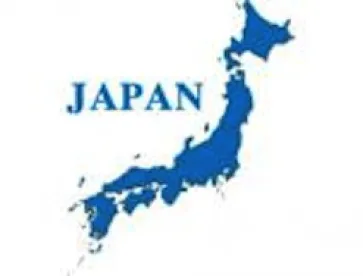It is no secret amongst criminal antitrust practitioners that the U.S. Department of Justice (DOJ) has had difficulty extraditing foreign nationals indicted for Sherman Act violations. Indeed, the extradition process is complex and uncertain given the multitude of hurdles the DOJ faces when attempting to extradite a citizen of a sovereign country.
Japanese nationals are no exception. The reality is that Japanese law and extradition proceedings afford the Japanese government a huge amount of discretion as to whether or not to comply with an extradition request made by the United States government. Interestingly, despite the nearly insurmountable challenges faced by the DOJ in extradition proceedings, a surprising number of Japanese executives and employees have acquiesced to the U.S. justice system, the result of which is inevitably time spent in federal prison. This begs the question: why, given the challenges the DOJ faces, would indicted Japanese citizens essentially give themselves up?
Over the past five years, the DOJ has come down hard on the auto parts industry, in particular, Japanese auto parts manufacturers. Indeed, the DOJ’s ongoing investigation has been a success. More than 30 companies have pleaded guilty to antitrust violations and paid approximately $2.4 billion in criminal fines. In addition to companies, the DOJ has made it policy to prosecute individuals deemed responsible for facilitating or condoning conspiratorial conduct, abandoning its “no-jail” recommendation common in the 1990s. To date, more than 50 foreign nationals have been indicted for antitrust violations. Of those, at least 22 have pleaded guilty and subjected themselves to U.S. jurisdiction. The others appear to have taken the gamble that the DOJ will not be able to extradite them. In truth, it may not be such a bad gamble in light of the fact that the DOJ has yet to extradite a Japanese national for crimes committed under the Sherman Act. And who’s to say the Japanese government would not sympathize with its citizens facing hard time in a U.S. prison given the rarity of criminal proceedings for antitrust activities in Japan? In fact, a former commissioner for the Japanese Fair Trade Commission (the agency tasked with enforcing Japan’s Antimonopoly Act) has expressed concerns about the DOJ’s prosecutorial decisions with respect to the DOJ’s ongoing auto parts investigations.
Extradition is governed by two laws in Japan: the Japanese Act of Extradition and the Extradition Treaty entered into by Japan and the United States. The Act of Extradition, in tandem with the Extradition Treaty, requires certain conditions to be met before the Japanese government will comply with an extradition request. Such requirements include: (i) the underlying offense must be illegal in both Japan and the U.S. (“double criminality”), (ii) the offense must be punishable by more than one year, and (iii) the requesting country must prove probable cause, to name only a few.
More burdensome for the DOJ are the procedural hurdles it faces in extraditing Japanese nationals and the amount of discretion afforded various Japanese agencies and courts. The Act of Extradition requires an extradition request to be made through diplomatic channels. In other words, the DOJ must first submit its request to the Minister of Foreign Affairs of Japan. The Minister of Foreign Affairs then passes the request on to the Minister of Justice of Japan. The Minister of Justice then conducts a review to make sure all of the requirements under the Act of Extradition and Extradition Treaty are met. After verifying that no statutory exceptions apply, the Minister of Justice will submit the extradition request to the Superintending Prosecutor of the Tokyo High Public Prosecutors Office. The Superintending Prosecutor then orders an application to be submitted to the Tokyo High Court. The Tokyo High Court will then decide whether the Japanese national should be extradited. The High Court has broad discretion to grant or deny an extradition request, and its decision is final and cannot be appealed. Furthermore, the Ministry of Justice also has broad discretion and is not obligated to abide by the High Court’s decision.
The level of discretion afforded the High Court and Ministry of Justice is important when one considers that antitrust violations are punished very differently in Japan than in the United States. Relatively speaking, punishments handed down by the Japanese Fair Trade Commission are mild in comparison to the hard jail time and criminal fines a defendant faces in the United States. As noted earlier, many in Japan feel as if the DOJ is overzealous in its pursuit of violators of the Sherman Act. These considerations may be weighed heavily by the Ministry of Justice or the High Court in determining whether to extradite a Japanese national.
In light of the legal hurdles and procedural risks, it is understandable that many indicted Japanese nationals are taking their chances, especially considering the DOJ has yet to successfully extradite a Japanese citizen for antitrust crimes. Yet, despite the DOJ’s challenges, many Japanese executives have voluntarily come to the United States to plead guilty and serve jail time. You may wonder why. Yoshya Usami, former Research Fellow of the American Antitrust Institute, provide three compelling possibilities in his paper Why did they cross the Pacific? Extradition: A Real Threat to Cartellists?. First, there is no certainty that an indicted Japanese citizen will not be extradited. Although the odds are stacked in the indicted individual’s favor, there is still a possibility that the extradition will succeed. Thus, for those who are risk averse, it may be better to cooperate fully to avoid harsher punishment in the event they are extradited. Second, if indicted Japanese nationals refuse to submit to U.S. jurisdiction, they will essentially be prisoners within their own country. With the advent of international agencies such as INTERPOL, an indicted individual would forever wonder if his or her next international trip will lead them to a federal prison in the United States. Lastly, many Japanese companies have assured their indicted executives that their jobs will be waiting for them upon serving their time in the United States. Therefore, there is comfort in the likelihood that once their time is served, life will return to relative normality.
In sum, the DOJ faces many challenges when attempting to extradite Japanese nationals, both legally and procedurally. But the uncertainty of success cuts both directions. Many indicted Japanese citizens have assessed the risk of extradition and made a calculated decision to give themselves up. Others have decided to take the gamble. A practitioner of criminal antirust with Japanese clients should keep these considerations in mind and weigh carefully the options their clients may have in the event of an indictment by the DOJ.




 />i
/>i

